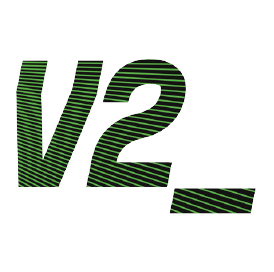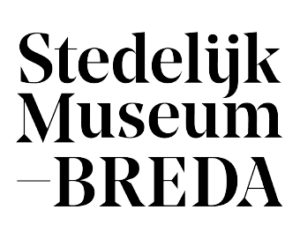Centre of Applied Research for
Art, Design and Technology
Exhibiting for Multiple Senses at the Dublin Art Book Fair...Exhibiting for Multiple Senses at the...
Professor Delfina Fantini van Ditmar in Regenerative...Professor Delfina Fantini van Ditmar in...
Two PhD Positions in...Two PhD Positions in JUST MATTER:...
Two Publications on Airing: the role of Materials within a...Two Publications on Airing: the role of...
‘Bias against...‘Bias against Artificial...
Podcast: Simone van...Podcast: Simone van den Broek on...
Level Up in Behavioural Change with Mind-the-Gap: Serious...Level Up in Behavioural Change with...
Sensory Inclusion at TURF Talk 2025Sensory Inclusion at TURF Talk 2025
Why AI Is Unsustainable. Sebastian Olma in Conversation with...Why AI Is Unsustainable. Sebastian Olma...
‘Without collaboration, impact is impossible. So… let's connect, and make a sustainable impact on society.’
Wouter Meys 
‘How can art and design cultivate critical expressions rooted in ethics of care and relationality to influence ecological, social, and economic structures?’
Delfina Fantini van Ditmar 
‘People are the product of their relationships with their environment. It’s important to understand how technological developments influence these relationships.’
Michel van Dartel 
‘Our research group investigates the role artists, designers and cultural producers in general can play in developing the aesthetics and poetics of a desirable future.’
Sebastian Olma 
‘My practice explores how technology participates in relational embodied systems - how bodies, sensors, and materials co-compose stories of attention and response.’
Mark Meeuwenoord 
‘I see Regenerative Design as newness continuously reoccurring throughout the making process’
Ariane Fourquier 
‘How can we find new materials and products that rely on interdependence between communities and ecological systems rather than extraction?’
Hugo F. Garcia 
‘‘How will our graduates make a living without selling their soul?’’
Sepp Eckenhaussen 
‘In social and cultural research there is increasing importance in research methodologies and devices that cut across fields and disciplines, becoming transdisciplinary.’
Jess Henderson 
‘My practice is situated in between different actors, in this shape-shifting middle many things can happen.’
Tara Karpinski 
‘Imagination is the key to a strong inclusive society. Artistic work and situated design can contribute to a better understanding of the other.’
Jenny van den Broeke 
‘Investigating the potential of sensory augmentation to bridge the sensory gap between deaf and hearing.’
Michel Witter 
‘As a result of my current research, I ask the students the questions “what is your work” and “what works for you.’
Rob Leijdekkers 
‘It is through the “not-knowing” that a stimulating and caring environment can be created to confidently share vulnerability.’
Risk Hazekamp 
‘‘Understanding how creativity and imagination emerge from interactions with our environment will lead to improved innovation processes, tools and technologies.’’
Alwin de Rooij 
‘Through an interplay of design and research, the apt questions and necessary tools can be discovered and applied to each research project.’
Antal Ruhl 
‘How can we disrupt the notion of being human while staying true to being humane?’
Wander Eikelboom 
‘Humans are atmospheric beings, particles, dust, in intimate cycles of exchange, actors with an incredible force.’
Annemarie Piscaer 
‘How do we live together, how do we work together? How do we give shape and form to ‘being together’ in the broadest sense?’
bas van den hurk 
‘Could experimental sensory translation of art works improve their accessibility for sensory diverse exhibition audiences?’
Eva Fotiadi 
‘Disrupting our contemporary society can be a serious design goal.’
Eke Rebergen 
‘A bio lab is a place of working with living organisms, brought out of their habitat so we can learn to think outside of the Petri dish. Let’s take care of these teachers!’
Michaela Davidová 
‘Interested in human behaviour as the basics underlying the way we design and innovate our society and economy.’
Marianne van Bommel 
‘The tacit and embodied knowledge of practitioners about the complex reality of design can provide an important resource to innovate how we learn and teach’
Sarah Lugthart 
‘Within my practice I create spaces for introspection while exploring ethical dilemmas. ’
Renée van Oploo 
‘How can the notion of the ‘script’ be used in a situated design practice? ’
Ollie Palmer 
‘The ultimate goal is to provide people with the information, skills and tools that enable them to improve the quality of their daily lives.’
Simone van den Broek 
‘Quality requires us to keep asking questions about what seems self-evident and to continuously align on the meaning of quality.’
Tamara Sijlbing 
‘Art and design research is essential to address the complex world questions we face today, as they think and do with the world and not on it.’
Carolina Valente Pinto 
‘Creating inclusive and accessible stories needs collaborative action. As a cultural producer and researcher, I explore these interactions.’
Rikst Westra 
‘My background in visual art makes me very involved in the content of the expertise centre.’
Wilma Diepens 
‘I support CARADT's mission to redefine the intersection of art, design, and technology by enhancing the synergy between administration and innovative research. ’
Juliëtte Cuijpers 
‘I am committed to ensure the highest quality in research, helping art and design play a transformative role in society through rigorous and integrative approaches.’
Anouk van Honk 
‘I am dedicated to give a voice to stories and perspectives that have not yet been heard.’
Liza Swaving 
‘To foster a culture of knowledge sharing and collaborative innovation at CARADT, I am dedicated to communicate findings and innovations effectively. ’
Eline Timmermans 
‘Exploring and integrating novel perspectives to our everyday through the eyes of fungi.’
Wasabii Ng 
‘For me, the iterative design-research process is an exciting journey towards designs that can transform human consciousness.’
Danielle Roberts 
‘The dynamic relationship between humans and living artefacts will continue to evolve reciprocally with mutual care.’
Elvin Karana 
‘Well beyond their common characterisation as problem-solvers, designers have a role to play in materialising public engagement with collective concern’
Laurens Kolks 
‘In my work the concept of time is a recurring theme.’
Xandra van der Eijk 
‘Performance is about engaging with versions of the self, stretching the gaze to see what others see when they look at you.’
Philippine Hoegen 
‘Consumers are creatures of habit. If we want them to break routine and live sustainably, we have to do more than just offer sustainable alternatives. ’
Estelle Nieuwenkamp 
‘Bacteria, Fungi, Humans, all part of the same experiment.’
Ward Groutars 
‘The essence of the situated, cinematic experience of dance lies in the mental interaction where the public becomes co-author.’
Noud Heerkens 
‘To be able to research something thoroughly, you have to deeply engage, not just look at it from the outside.’
Bart Stuart 
‘The pleasure of working in the [MI] lab is that microbiological research is carried out from two different approaches.’
John van der Werf 
‘Digital media help me to envision future interactions with living materials’
Jose Martinez Castro 
‘Who benefits?’
Ivo Koolen 
‘Doing research connects my practice with teaching; it strengthens and brings them closer together.’
Martine Stig 
‘The most difficult and empowering thing as an artist is to stay honest about my work and me. And I'd like to help my students to get there too.’
Aiwen Yin 
‘I believe a collaborative and efficient lab can address both educational and research demands.’
Serena Buscone 
‘Getting comfortable with ambiguity enables designers to absorb feedback and use it to make better design choices.’
Gabri Heinrichs 
‘I look at the ways in which citizens can play an active role in shaping their cities, and how new media and technology can contribute to this.’
Barbara Asselbergs 
‘I am eager to explore how unique qualities of ‘living materials’ can transform the way we think, feel and act.’
Hazal Ertürkan 
‘Nature is a perfect example of an iterative design process. It is inspiring and full of exciting solutions.’
Clarice Risseeuw 
‘Power, control and chance play an important role in every creative process. I explore this complicated correlation.’
Michiel van Opstal 
‘Research is partly communication.’
Martje Kuijpers 
‘Clear communication enforces the impact and value of Caradt’s research.’
Kris Vleugels 
‘My particular interest lies in sharing interesting and thought-provoking stories. Communication is a big part of that.’
Kimberley Rochat 
‘Why try to design solutions if you can design questions?’
Leonardo Landoni 
‘Caradt’s practice-led research aims to empower artists and designers to make a meaningful contribution to society through their projects.’
Rens Holslag 
‘In my point of view, the arts, teaching, research, creation, are all connected. It is all a matter of communication.’
Joana Borges 
‘Attention during interaction is personal, not a given fact.’
Misha Croes 
CARADT is the Centre of Applied Research at Avans University of Applied Sciences that explores the potential of art, design and technology to contribute to just and regenerative futures.
Through practice-based research, we empower artists and designers to address the social, ecological and cultural transitions of our time. Our approach is guided by creativity and critical imagination: as methods for questioning systems and developing alternative ways of thinking, making and living.
CARADT works across disciplines and in close collaboration with other Centres of Applied Research at Avans University of Applied Sciences, as well as with external partners. Our research programme is developed in close collaboration with the educational departments of Avans University of Applied Sciences, ensuring a strong integration of research, education and societal engagement.
About CARADTResearch Group: Cultural and Creative Industries
The research group Cultural and Creative Industries investigates the role of artists and designers as creative innovators and drivers of social and economic change.
Read moreResearch Group: Situated Art, Design and Technology
The research group Situated Art, Design and Technology sees an unprecedented need for artists and designers to consider aesthetics 'in the wild'.
Read moreResearch Group: Regenerative Art and Design
The Regenerative Art and Design (RAD) research group seeks to form a new generation of regenerative designers and artists who will create transformative pathways for reimagining design futures grounded in care and ecological integrity.
Read more
















































